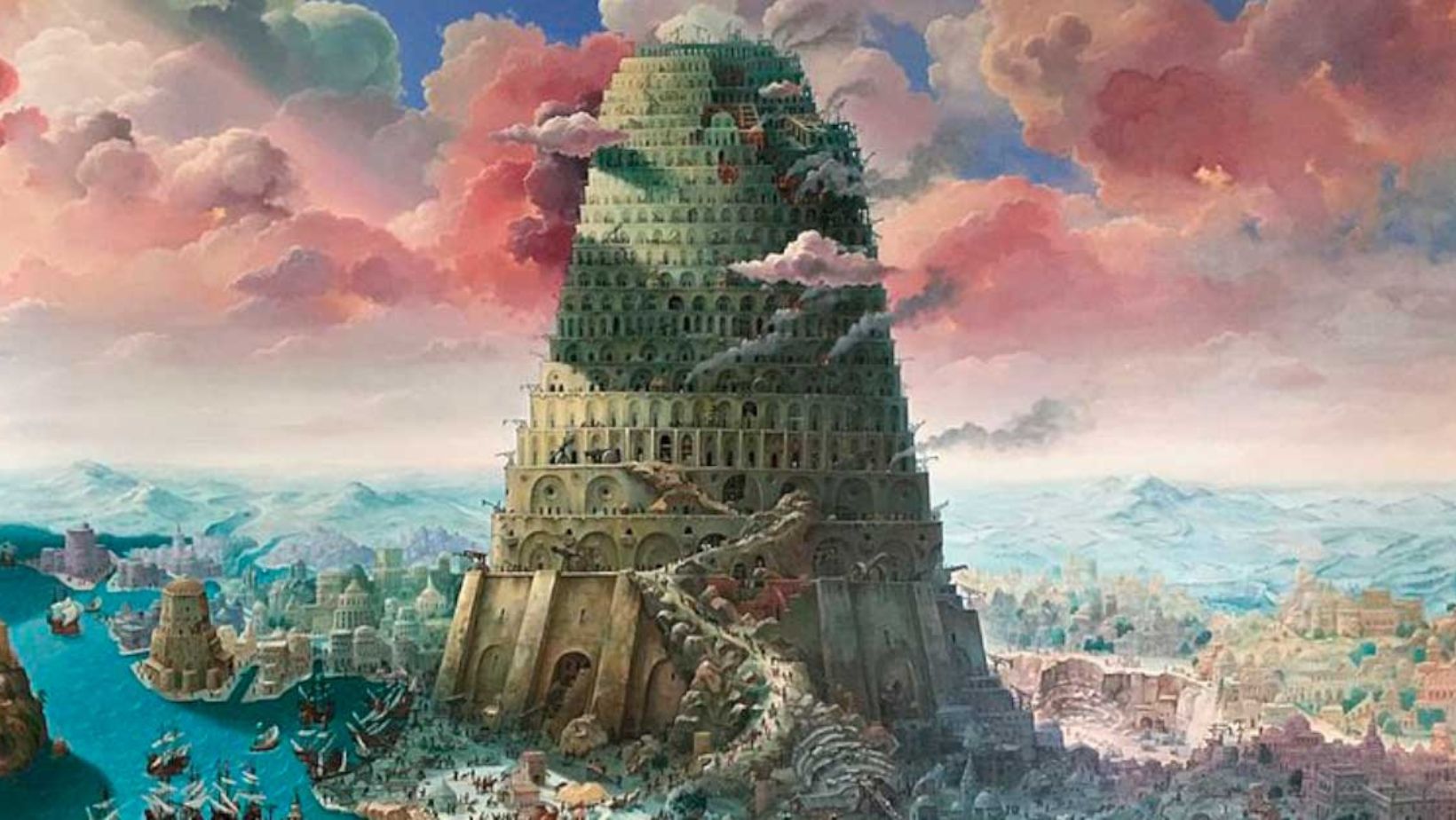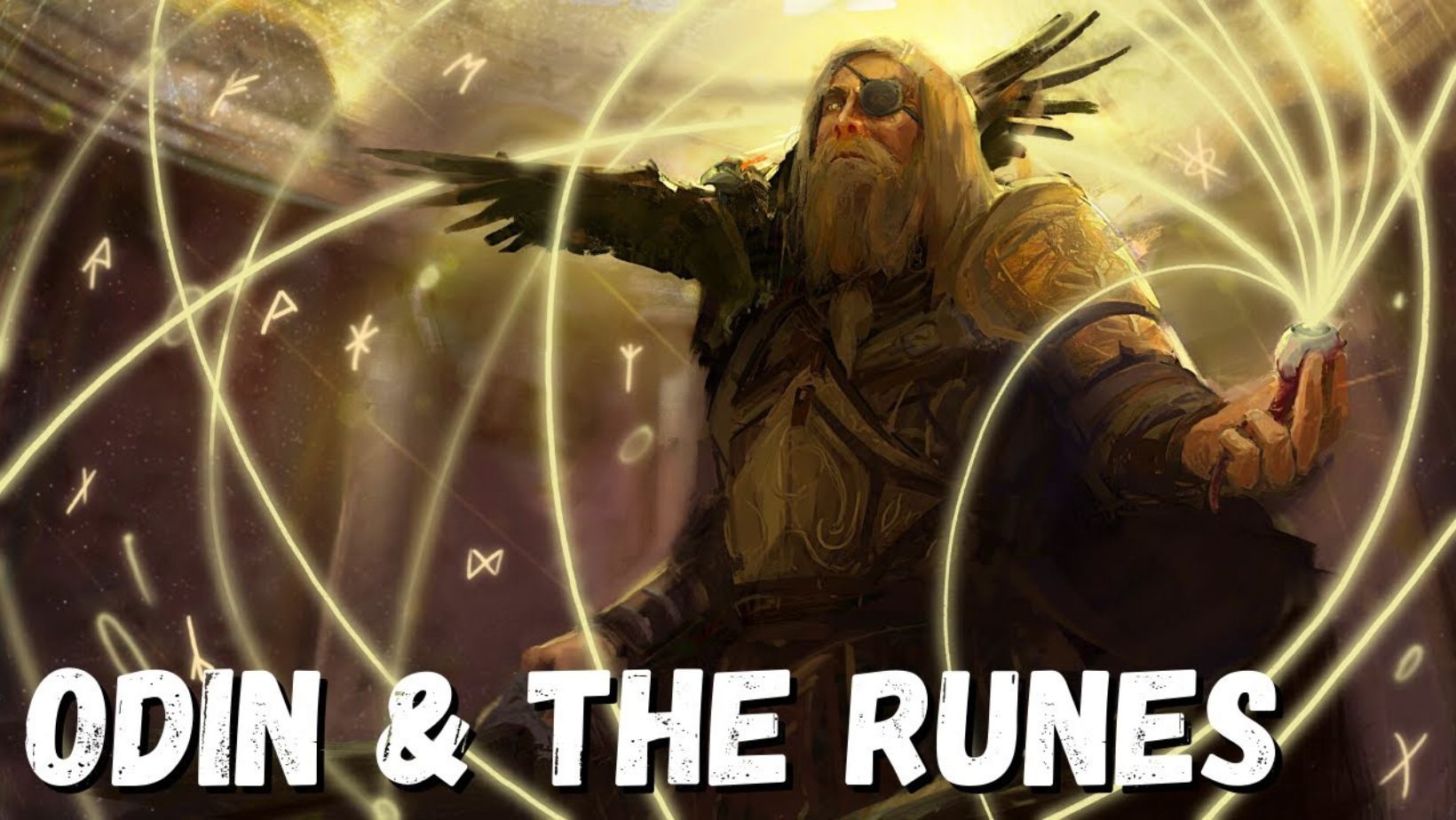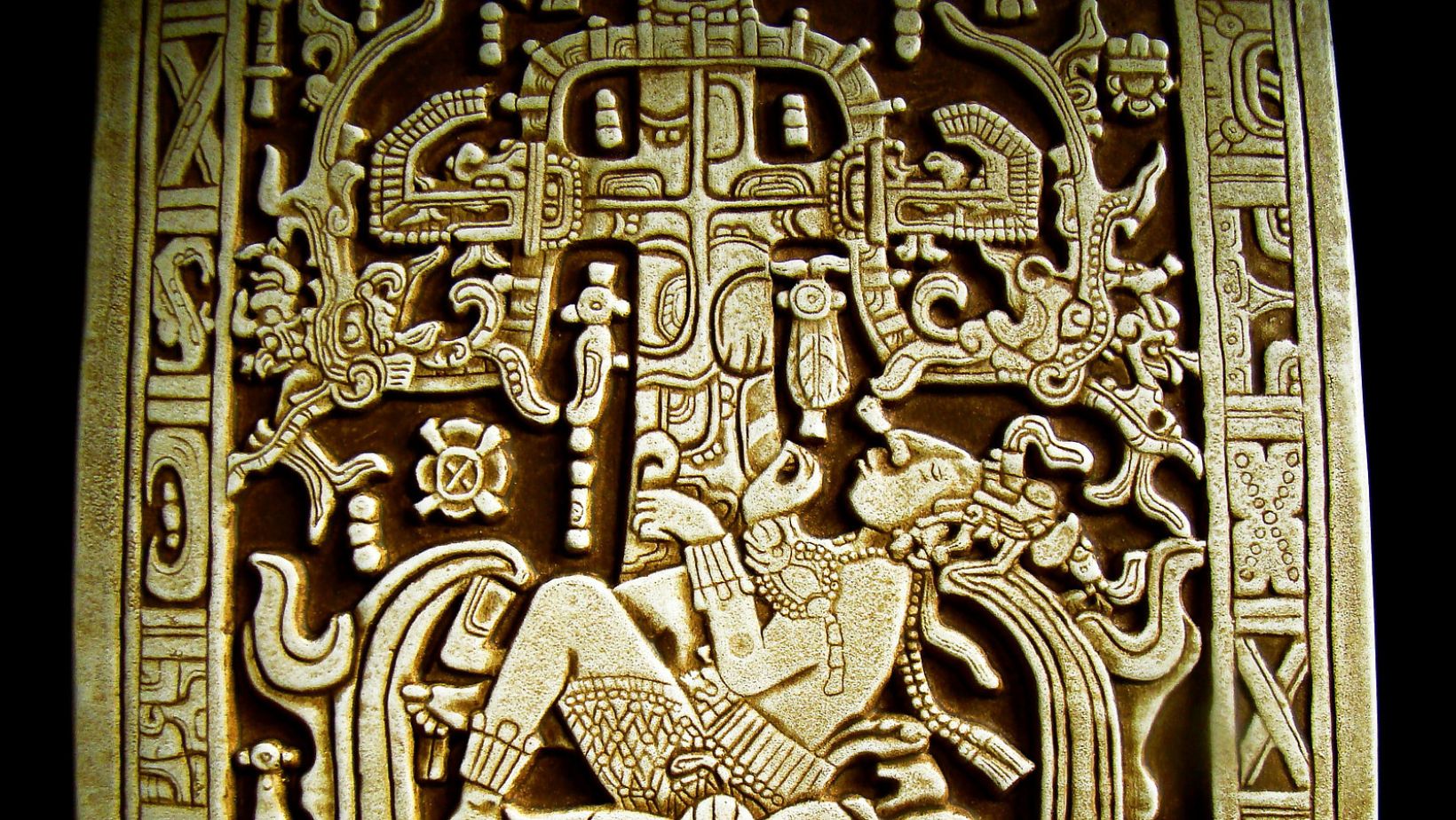The origins of Different Languages are fascinating. Across the globe, there are over 7,000 spoken languages, each with its own unique sounds, structure, and history. How did this incredible variety come to be? Why don’t we all speak the same tongue?
Language isn’t just about communication—it’s deeply tied to culture, shaping how we see the world. For centuries, myths have offered captivating explanations for this linguistic diversity. These ancient stories provide insight into the Origins of Different Languages, weaving tales of gods, magic, and human fate. Let’s explore these intriguing myths together.
The Tower of Babel: A Biblical Explanation of Language Origins

The Tower of Babel is a famous story from the Bible, found in Genesis 11:1-9. It tells of a time when all humans spoke the same language. They came together in the city of Babel and decided to build a tower tall enough to reach the heavens. God, seeing their pride and ambition, confused their language so they could no longer understand each other. This caused them to scatter across the earth, halting their construction.
The myth explains why different languages exist. By confusing their speech, God forced people to spread out and form new communities. Each group developed its own language, creating the diversity we see today. Origins of Different Languages.
Culturally, this story highlights the dangers of human pride and ambition. It serves as a warning about trying to defy divine will. Religiously, it reflects the belief that God controls human fate and the course of history.
The Tower of Babel continues to be a powerful symbol in religious thought. It explains not only linguistic diversity but also the separation of nations.
Hindu Mythology: The Languages of the Gods
In Hindu mythology, language is seen as a divine gift. The gods are believed to have played a direct role in the creation and spread of languages. Hindus hold the belief that multiple languages exist because different gods and deities oversee various aspects of communication and knowledge. Language is sacred, and its diversity reflects the richness of Hindu culture and spirituality. Origins of Different Languages.
The goddess Saraswati, revered as the goddess of wisdom, music, and speech, is closely associated with language. She is believed to have given humans the ability to speak and communicate. Saraswati’s blessing is thought to bring clarity, eloquence, and knowledge. Her influence is particularly tied to Sanskrit, considered the “divine language” in Hinduism.
Sanskrit holds a special place in Hinduism as the language of the ancient scriptures, including the Vedas and Upanishads. It is regarded as the language spoken by the gods and used in sacred rituals. While many languages exist in Hindu culture, Sanskrit is viewed as the purest, carrying divine wisdom. In this way, Hindu mythology connects language directly to the divine, with Saraswati at the center of this sacred tradition.
Greek Mythology: The Role of Hermes in Language
In Greek mythology, Hermes is the god of communication, language, and trade. He serves as the messenger of the gods, delivering their words to humans. Hermes is also known for his cleverness and ability to move between worlds, making him the perfect god to oversee speech and communication. His influence extends to language, diplomacy, and even writing. Origins of Different Languages.
According to myth, Hermes taught humans the use of language, allowing them to speak. He was believed to have invented the alphabet and writing systems, allowing humans to communicate more effectively. This gift facilitated human interaction and enabled the transmission of knowledge across generations. Hermes’ role in language is vital to human development and culture.
Greek mythology also acknowledges linguistic diversity. Different gods and regions had their own dialects and languages, reflecting the varied cultures of ancient Greece. This diversity was viewed as natural and part of the human experience. Hermes’ gift of language allowed people to express their unique identities, while also emphasizing the importance of communication between different communities.
Norse Myths: Odin and the Runes

In Norse mythology, Odin, the chief of the gods, discovered the runes through an act of great sacrifice. To gain wisdom, Odin hung himself from Yggdrasil, the World Tree, for nine days and nights. After enduring this ordeal, he was granted knowledge of the runes, which he then shared with humanity. The runes were not just symbols for communication but also contained magical powers. Origins of Different Languages.
Runes played a significant role in Norse culture, used both for writing and for performing magic. Each rune had its own meaning and was believed to hold mystical properties. They were carved into stones, weapons, and tools, and often used in rituals to invoke protection, guidance, or strength. Runes allowed the Norse to communicate with the gods and navigate the spiritual world.
In Norse myths, the runes symbolize the evolution of language as both a practical and spiritual tool. Odin’s discovery marks the beginning of written language in Norse culture, showing how language can connect humans to divine knowledge. The myth emphasizes the importance of language in both everyday life and in understanding the deeper mysteries of the universe.
Native American Myths: Creation Stories and Language Diversity
In Native American cultures, language is often woven into creation myths that explain the origins of the world and its people. Many tribes believe that language was a gift from the Creator or sacred beings. These myths highlight the idea that each tribe’s language was specially given to them to connect with their land, ancestors, and spiritual world. Language, therefore, is not just a tool for communication, but a sacred element of identity.
Among the Hopi, one myth explains that humans were created by Tawa, the Sun Spirit, and given the ability to speak in different languages. As people moved to different parts of the earth, their languages changed with their environments. The Apache tell of a similar myth where language was a gift from the Creator, who intentionally gave each tribe a different way of speaking. This ensured that they could develop their own unique cultures and traditions. Origins of Different Languages.
These myths reflect the belief that linguistic diversity was intentional and essential. Each tribe’s language is deeply tied to its worldview, reflecting its values, environment, and history. In Native American thought, the existence of multiple languages celebrates the diversity and richness of human experience.
African Folklore: Anansi and the Creation of Language
Anansi, the trickster spider, is a popular figure in African folklore, especially among the Akan people of Ghana. In one tale, Anansi was given all the world’s wisdom by the Sky God. He decided to keep it for himself, storing it in a pot. However, after several misadventures, Anansi accidentally dropped the pot, scattering language and knowledge across the earth for everyone to use.
In other African folklore, speech and language are often seen as gifts from gods or powerful spirits. These stories emphasize that language was distributed among different groups, giving each community a distinct way of speaking. Language diversity in African myths is viewed as a divine blessing, ensuring that each tribe could develop its own identity and culture.
Oral traditions and storytelling hold a crucial place in African cultures. Since much of African history and culture was passed down orally, language became a central part of preserving identity. Storytelling, often done in communal settings, was a way to educate, entertain, and maintain traditions. The tale of Anansi, like many others, highlights how language shapes human experience and connects people to their heritage.
Chinese Mythology: The Legend of Nuwa and Human Language
In Chinese mythology, the goddess Nuwa is credited with creating humanity. She is said to have molded humans from yellow clay and given them life. Along with life, she provided humans with the ability to communicate. Through Nuwa’s gift, humans were able to speak and express themselves, building the foundation for society and culture.
Another myth explains how written characters came into existence. Cangjie, a legendary figure, was inspired by the shapes of animals and natural elements. He created the first Chinese characters, which allowed people to record knowledge and communicate over distances. This myth reflects the divine origin of both spoken and written language in Chinese culture.
Language plays a key role in shaping Chinese identity and traditions. Written characters, especially, are deeply connected to the culture’s history and philosophy. The ability to communicate both orally and through writing helped form a cohesive society. In Chinese mythology, language is seen as a powerful tool that connects humans not only to each other but also to the divine.
The Polynesian Myths: Maui and the Origins of Different Languages
Maui, the trickster and demigod, plays a central role in Polynesian mythology. Known for his cleverness and magical abilities, Maui is credited with many feats, from slowing the sun to fishing up islands. In some myths, Maui is also associated with the creation and spread of languages. As he traveled across the Pacific, he taught people different tongues, helping them adapt to their new environments.
According to these myths, as people migrated to various islands, their languages began to change. Each island developed its own unique language, shaped by its geography and culture. These stories explain why the many islands of Polynesia speak distinct yet related languages. The myth highlights how language evolved as people moved and settled across the vast Pacific Ocean.
In Polynesian societies, language holds deep cultural significance. Oral traditions are highly valued, with storytelling and song being important ways to pass down history and values. Language connects individuals to their ancestors, their land, and their community. Through Maui’s mythical actions, the Polynesians saw language not just as a tool for communication but as a vital part of their cultural identity and heritage.
Mesoamerican Myths: The Maya and the Language of the Gods

In Maya mythology, it is believed that the gods created language for humans. According to these myths, the gods first spoke in a divine language, which was then passed down to humans. This sacred language allowed humans to communicate with the gods and each other, helping to maintain harmony between the divine and earthly realms.
Hieroglyphs played a crucial role in Mesoamerican myths, particularly for the Maya. The Maya used a complex system of hieroglyphic writing to record their history, rituals, and religious texts. These glyphs were not only practical but also held spiritual significance, believed to be imbued with divine power. The writing system connected the Maya directly to their gods and ancestors. Origins of Different Languages.
In Maya culture, language is deeply intertwined with spirituality. The ability to read and write hieroglyphs was considered a divine gift that linked humans to the supernatural world. By using these sacred symbols, the Maya could engage in rituals, preserve cosmic order, and convey divine messages. Thus, language in Maya culture was seen as a bridge between the earthly and the divine.
Common Themes in Language Myths Around the World: Origins of Different Languages
Language origin myths from various cultures share several common themes. Many myths involve divine intervention, where gods or supernatural beings create or bestow language upon humans. These stories often depict language as a sacred gift, a tool for communication, or a means to connect with the divine. Another recurring theme is the scattering of people or the division of languages as a form of punishment or reward, reflecting the belief that linguistic diversity stems from divine actions.
These myths underscore the critical role of language in human society. Language is often portrayed as essential for civilization, culture, and spiritual connection. Myths highlight how language enables people to express identity, maintain social order, and engage in cultural practices. Through these stories, societies reveal their understanding of language as a fundamental aspect of human existence.
Storytelling is a universal method for explaining linguistic diversity. Across cultures, myths use engaging narratives to make sense of the complex phenomenon of language. These stories help preserve cultural values and offer insights into how different communities view the origins and significance of language in their lives.
Conclusion: Origins of Different Languages
Myths continue to captivate us because they offer compelling explanations for complex phenomena like language diversity. They provide insight into how different cultures understand and value language, reflecting deeper truths about human identity and social order. By exploring these myths, we gain a richer appreciation of cultural diversity and the unique ways communities connect with their heritage. Understanding these stories helps us see language not just as a tool for communication but as a fundamental aspect of cultural and personal identity. Origins of Different Languages.
FAQs: Origins of Different Languages
Why do different cultures have varying myths about the Origins of Different Languages?
Different cultures have unique myths about language origins because each society develops its own explanations based on its worldview, religious beliefs, and social values. These myths reflect the cultural importance of language and its role in connecting people to their deities, ancestors, and environment.
How do myths about the Origins of Different Languages influence the modern understanding of language?
Myths about language origins often highlight the sacred and cultural significance of language. They influence modern understanding by emphasizing the connection between language and identity, cultural heritage, and spiritual beliefs. This perspective helps us appreciate the deep-rooted cultural importance of language beyond its practical use.
Are there any similarities between myths about language creation from different cultures?
Yes, many myths share similarities, such as divine or supernatural beings creating language for humans. Common themes include the idea that language was a gift from the gods or a crucial element for maintaining harmony and social order. Despite cultural differences, these shared elements highlight universal human concerns about communication and identity.
How do these myths affect the preservation of languages?
While myths themselves do not directly impact language preservation, they underscore the value and sacredness of language in cultural traditions. By recognizing the importance of language in these myths, societies may be more motivated to preserve and revitalize their languages, ensuring that they continue to be spoken and valued.
Can myths about language be considered a form of early linguistic theory?
Yes, in a way, myths about language can be seen as early forms of linguistic theory. They provide explanations for the origins and diversity of language, reflecting how ancient cultures understood and conceptualized language. These myths offer insight into how different societies approached and made sense of the complex phenomenon of human communication.

